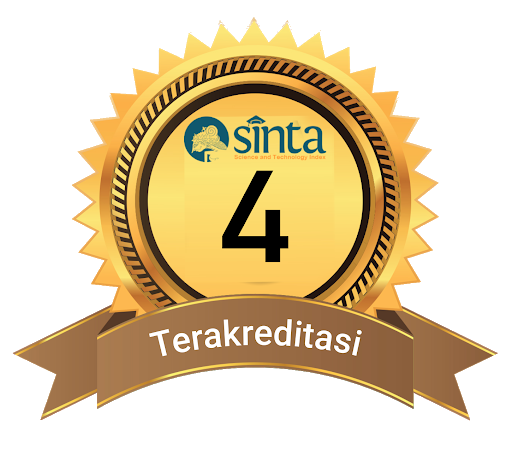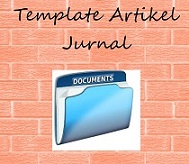Efforts of Islamic Religious Education Teachers in Responding to the Impact of Using Gadgets on Students
Abstract
This study aims to determine the actual situation regarding the Efforts of Islamic Religious Education Teachers in Responding to the Impact of Using Gadgets on Students. This study uses a qualitative approach and, in collecting data, uses observation, interviews, and documentation methods. The steps taken by researchers in analyzing the data are data collection, data reduction, data presentation, drawing conclusions and verification, and testing the data's validity. The study's results can be stated that: The Use of gadgets on students has a positive impact, namely increasing knowledge, facilitating communication, facilitating the search for the subject matter and entertainment media. While the negative consequences are anti-social, they pay less attention to lessons and can access harmful content. Efforts made by islamic religion teachers in responding to the impact of using gadgets on students are providing assistance, giving warnings, and confiscating devices. Meanwhile, the efforts made by the school to overcome the effect of using gadgets are calling counselling teachers, calling parents to school and giving suspensions.
Keywords
Full Text:
PDFReferences
Abasimel, N. A. (2022). Islamic Banking and Economics: Concepts and Instruments, Features, Advantages, Differences from Conventional Banks, and Contributions to Economic Growth. Journal of the Knowledge Economy. https://doi.org/10.1007/s13132-022-00940-z
Abel-Berei, C. P., Goc Karp, G., Fennell, M., Drake, E., & Olsen, S. (2021). Stakeholders’ Perspectives on the Effects of a PEP Grant on a District-Wide CSPAP. Journal of Teaching in Physical Education, 40(1), 86–97. https://doi.org/10.1123/jtpe.2019-0001
Adebayo, T. S., & Akinsola, G. D. (2021). Investigating the Causal Linkage Among Economic Growth, Energy Consumption and CO2 Emissions in Thailand: An Application of the Wavelet Coherence Approach. International Journal of Renewable Energy Development, 10(1), 17–26. https://doi.org/10.14710/ijred.2021.32233
Ahmed Malik, S. (2021). Islam and Evolution: Al-Ghazālī and the Modern Evolutionary Paradigm (1 ed.). Routledge. https://doi.org/10.4324/9780429345753
Ali, H., Khan, E., & Ilahi, I. (2019). Environmental Chemistry and Ecotoxicology of Hazardous Heavy Metals: Environmental Persistence, Toxicity, and Bioaccumulation. Journal of Chemistry, 2019, 1–14. https://doi.org/10.1155/2019/6730305
Al-Toma, A., Volta, U., Auricchio, R., Castillejo, G., Sanders, D. S., Cellier, C., Mulder, C. J., & Lundin, K. E. A. (2019). European Society for the Study of Coeliac Disease (ESsCD) guideline for coeliac disease and other gluten‐related disorders. United European Gastroenterology Journal, 7(5), 583–613. https://doi.org/10.1177/2050640619844125
Amhag, L., Hellström, L., & Stigmar, M. (2019). Teacher Educators’ Use of Digital Tools and Needs for Digital Competence in Higher Education. Journal of Digital Learning in Teacher Education, 35(4), 203–220. https://doi.org/10.1080/21532974.2019.1646169
Amini, S., & Mohaghegh, S. (2019). Application of Machine Learning and Artificial Intelligence in Proxy Modeling for Fluid Flow in Porous Media. Fluids, 4(3), 126. https://doi.org/10.3390/fluids4030126
Andersen, J. C., & Sandberg, S. (2020). Islamic State Propaganda: Between Social Movement Framing and Subcultural Provocation. Terrorism and Political Violence, 32(7), 1506–1526. https://doi.org/10.1080/09546553.2018.1484356
Ben-Daya, M., Hassini, E., & Bahroun, Z. (2019). Internet of things and supply chain management: A literature review. International Journal of Production Research, 57(15–16), pp. 4719–4742. https://doi.org/10.1080/00207543.2017.1402140
Donkers, M. A., Gilissen, V. J. H. S., Candel, M. J. J. M., Van Dijk, N. M., Kling, H., Heijnen-Panis, R., Pragt, E., Van Der Horst, I., Pronk, S. A., & Van Mook, W. N. K. A. (2021). Moral distress and ethical climate in intensive care medicine during COVID-19: A nationwide study. BMC Medical Ethics, 22(1), 73. https://doi.org/10.1186/s12910-021-00641-3
Everett, J. A. C., Colombatto, C., Awad, E., Boggio, P., Bos, B., Brady, W. J., Chawla, M., Chituc, V., Chung, D., Drupp, M. A., Goel, S., Grosskopf, B., Hjorth, F., Ji, A., Kealoha, C., Kim, J. S., Lin, Y., Ma, Y., Maréchal, M. A., … Crockett, M. J. (2021). Moral dilemmas and trust in leaders during a global health crisis. Nature Human Behaviour, 5(8), 1074–1088. https://doi.org/10.1038/s41562-021-01156-y
Ewing, L.-A., & Cooper, H. B. (2021). Technology-enabled remote learning during Covid-19: Perspectives of Australian teachers, students and parents. Technology, Pedagogy and Education, 30(1), 41–57. https://doi.org/10.1080/1475939X.2020.1868562
Farjon, D., Smits, A., & Voogt, J. (2019). Attitudes and beliefs, competency, access, and experience explain pre-service teachers' technology integration. Computers & Education, 130, 81–93. https://doi.org/10.1016/j.compedu.2018.11.010
Greenhalgh, T., Ozbilgin, M. F., Prainsack, B., & Shaw, S. (2019). Moral entrepreneurship, the power‐knowledge nexus, and the Cochrane “crisis.” Journal of Evaluation in Clinical Practice, 25(5), 717–725. https://doi.org/10.1111/jep.13124
Gulati, A., Qin, J., Chiu, C.-C., Parmar, N., Zhang, Y., Yu, J., Han, W., Wang, S., Zhang, Z., Wu, Y., & Pang, R. (2020). Conformer: Convolution-augmented Transformer for Speech Recognition. Interspeech 2020, pp. 5036–5040. https://doi.org/10.21437/Interspeech.2020-3015
Hao, Y., Hao, S., Andersen-Nissen, E., Mauck, W. M., Zheng, S., Butler, A., Lee, M. J., Wilk, A. J., Darby, C., Zager, M., Hoffman, P., Stoeckius, M., Papalexi, E., Mimitou, E. P., Jain, J., Srivastava, A., Stuart, T., Fleming, L. M., Yeung, B., … Satija, R. (2021). Integrated analysis of multimodal single-cell data. Cell, 184(13), 3573-3587.e29. https://doi.org/10.1016/j.cell.2021.04.048
Howarth, D., & Schild, J. (2021). Nein to 'Transfer Union': The German brake on constructing a European Union fiscal capacity. Journal of European Integration, 43(2), 209–226. https://doi.org/10.1080/07036337.2021.1877690
Kuru, A. T. (2019). Islam, Authoritarianism, and Underdevelopment: A Global and Historical Comparison (1 ed.). Cambridge University Press. https://doi.org/10.1017/9781108296892
Letko, M., Marzi, A., & Munster, V. (2020). Functional assessment of cell entry and receptor usage for SARS-CoV-2 and other lineage B betacoronaviruses. Nature Microbiology, 5(4), 562–569. https://doi.org/10.1038/s41564-020-0688-y
Letunic, I., & Bork, P. (2019). Interactive Tree Of Life (iTOL) v4: Recent updates and new developments. Nucleic Acids Research, 47(W1), W256–W259. https://doi.org/10.1093/nar/gkz239
Li, Z., Yi, Y., Luo, X., Xiong, N., Liu, Y., Li, S., Sun, R., Wang, Y., Hu, B., Chen, W., Zhang, Y., Wang, J., Huang, B., Lin, Y., Yang, J., Cai, W., Wang, X., Cheng, J., Chen, Z., … Ye, F. (2020). Development and clinical application of a rapid IgM‐IgG combined antibody test for SARS‐CoV‐2 infection diagnosis. Journal of Medical Virology, 92(9), 1518–1524. https://doi.org/10.1002/jmv.25727
Lin, C., Tu, P., & Beitsch, L. M. (2020). Confidence and Receptivity for COVID-19 Vaccines: A Rapid Systematic Review. Vaccines, 9(1), 16. https://doi.org/10.3390/vaccines9010016
Mamun, Md. A. A., Strong, C. A., & Azad, Md. A. K. (2021). Islamic marketing: A literature review and research agenda. International Journal of Consumer Studies, 45(5), 964–984. https://doi.org/10.1111/ijcs.12625
Montreuil, M., Thibeault, C., McHarg, L., & Carnevale, F. A. (2020). Moral Experiences of Crisis Management in a Child Mental Health Setting: A Participatory Hermeneutic Ethnographic Study. Culture, Medicine, and Psychiatry, 44(1), 80–109. https://doi.org/10.1007/s11013-019-09639-4
Ozturk, A. E. (2021). Islam and Foreign Policy: Turkey’s Ambivalent Religious Soft Power in the Authoritarian Turn. Religions, 12(1), 38. https://doi.org/10.3390/rel12010038
Pham, T. H., Nguyen, T. N., Phan, T. T. H., & Nguyen, N. T. (2019). Evaluating the purchase behaviour of organic food by young consumers in an emerging market economy. Journal of Strategic Marketing, 27(6), 540–556. https://doi.org/10.1080/0965254X.2018.1447984
Syazali, M., Sari, N. R., Sukawati, Sari, W. R., Pertiwi, S. D., Putra, A., & Putra, F. G. (2019). Islamic-Nuanced Linear Algebra Module with Problem-Based Learning Approach for Linear Equation System Material. Journal of Physics: Conference Series, 1155, 012097. https://doi.org/10.1088/1742-6596/1155/1/012097
Traag, V. A., Waltman, L., & Van Eck, N. J. (2019). From Louvain to Leiden: Guaranteeing well-connected communities. Scientific Reports, 9(1), 5233. https://doi.org/10.1038/s41598-019-41695-z
Xu, J., Glicksberg, B. S., Su, C., Walker, P., Bian, J., & Wang, F. (2021). Federated Learning for Healthcare Informatics. Journal of Healthcare Informatics Research, 5(1), 1–19. https://doi.org/10.1007/s41666-020-00082-4
Zawacki‐Richter, O. (2021). The current state and impact of Covid‐19 on digital higher education in Germany. Human Behavior and Emerging Technologies, 3(1), 218–226. https://doi.org/10.1002/hbe2.238
Zhou, T., Huang, S., Cheng, J., & Xiao, Y. (2020). The Distance Teaching Practice of Combined Mode of Massive Open Online Course Micro-Video for Interns in Emergency Department During the COVID-19 Epidemic Period. Telemedicine and E-Health, 26(5), 584–588. https://doi.org/10.1089/tmj.2020.0079
DOI: http://dx.doi.org/10.31958/jeh.v8i1.9417
Refbacks
- There are currently no refbacks.
Copyright (c) 2023 Khaerul Khaerul

This work is licensed under a Creative Commons Attribution-NonCommercial 4.0 International License.
El-Hekam Indexed By:














